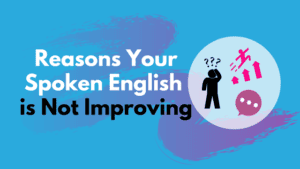Introduction
Which is the best accent for IELTS Speaking?
How can I improve my pronunciation for IELTS Speaking?
Two important questions and in this article I will tell the answer and also give you some tips and tools on how to improve your pronunciation in a fun and engaging way, so you can move from being a struggling IELTS Student to a Successful IELTS Speaker.
What you will learn
Accents Around the World
Did you know everyone has an accent, from the Queen to Taylor Swift. From Boris Johnson to me.
When it comes to English there are two kinds of accent that are important for IELTS Speaking.
Standard Varieties of English
There are several accepted standard varieties of English, including accent. These mainly include,
- North American (US and Canada)
- Australian and New Zealand
- South African
- Irish
- British
What’s more, there are around 50 countries around the world that have English as an official language, in addition to their mother tongue. These include India, Singapore, Philippines and many more. However, these varieties of English are not always seen as ‘accepted standard varieties’ of English.
Local Accents
This is the most common kind of accent where a speaker’s accent is marked by their mother tongue. So this would be, for example, a French person speaking English with a French accent.

Which is the best accent for IELTS Speaking?
The simple answer is, there isn’t one. Accent does not matter in IELTS Speaking.
So long as you can be understood and have control of English pronunciation features.
These include such things as,
- sounds
- word stress
- sentences stress
- connected speech
- intonation and so on
So, you can have a local accent, and still get a Band 9 on IELTS Speaking.
Do note, of course, there will be a problem if you mispronounce sounds such as vowels, if you drop consonants, if you have the wrong stress in a word or if you use misleading intonation, and so forth.
In fact, anything that will affect clarity of communication, will affect your score.
A Myth about IELTS Accents
Some people believe the following:
“It is better to have a British accent in IELTS because it is a British exam.”
Nonsense!
This is not true, at all.
Yes, IELTS is a British exam, but it sees English as an international language, so all standard varieties are used in the test, and all are seen as being of equal value.

Why is English pronunciation so difficult?
Mother tongue interference
You have spent so many years using your mouth muscles to pronounce words in your own language, it is very difficult to change.
Your mother tongue will always influence your English. There may even be some English sounds that don’t even exist in your language.
So you have to learn to pronounce again.
A bit like a baby.
Learning to talk again.
Identity
Many people see their language as being a key part of their identity. For many, their language is connected to their country and nation. So of course, many people are reluctant to lose their language or their native accent, even when they speak English.
This is why many people speak English with a local accent, it helps keep their sense of identity.
And this is absolutely fine!
You should be proud of your local accent.
You can keep your local accent when speaking English, so long as it doesn’t affect your communication.
Lack of feedback
How do we know if our pronunciation is correct?
We often don’t know. And that is the problem.
No one is telling us our mistakes and helping us correct them.
Without such feedback, it is hard to improve
How to improve your English pronunciation
First of all practice lots, remember, you need to retrain your muscles.
You will need to practice not only sounds, but the full range of pronunciation features needed for IELTS. These include practicing,
- Sounds
- Words
- Phrases
You can practice
- with a teacher
- with other friends
- alone with a recording (audio or video)
I personally think the best is doing all of the above!
The key thing is to get feedback so you can correct your mistakes, and then practice the correct pronunciation.
Teachers are great for giving feedback and also some Pronunciation Apps can be good for this.
I am not a big fan of these, as often the voice recognition is not good enough.
However, there is one that I like called ELSA.
I like it because it,
- has high level voice recognition, (of sounds, words and phrases)
- spots your mistakes
- gives feedback on pronunciation (sounds, stress, linking, intonation)
- gives a custom-made learning journey
- puts all the language in natural context
Where are you from and what kind of accent do you have? Let us know in the comments below.
Together we can learn from each other and grow as a community.





